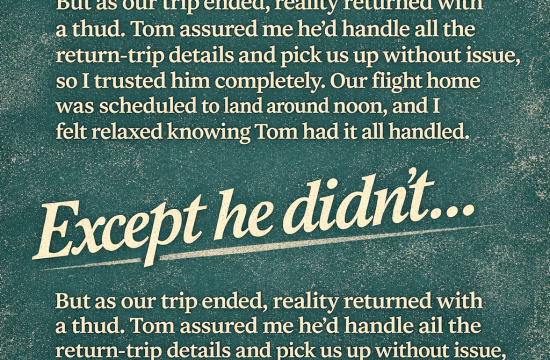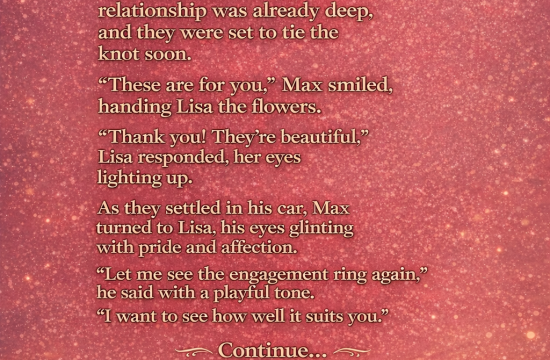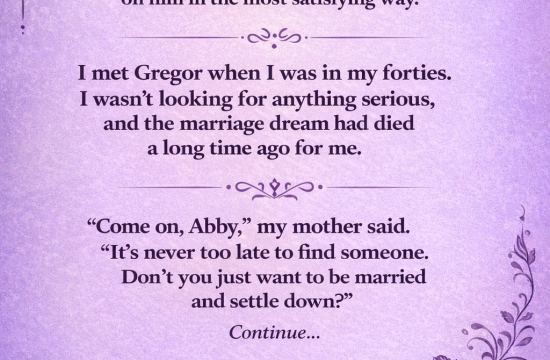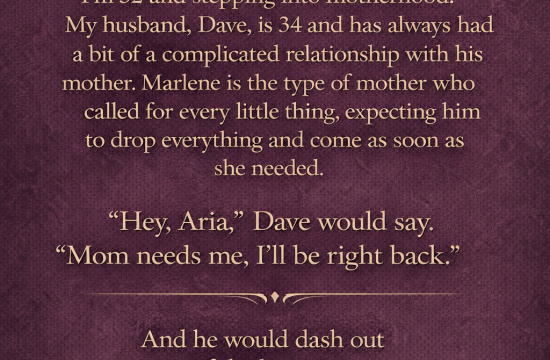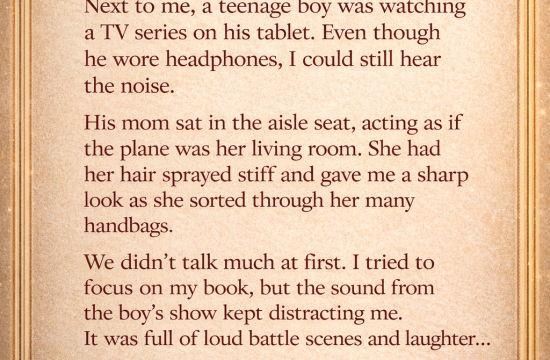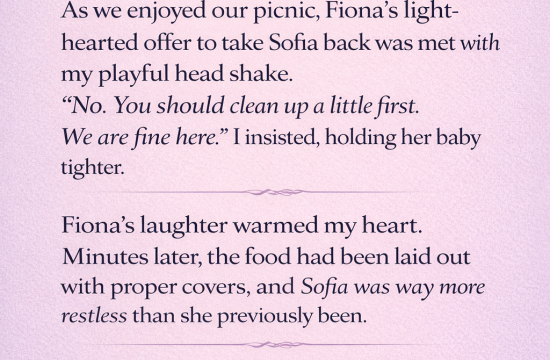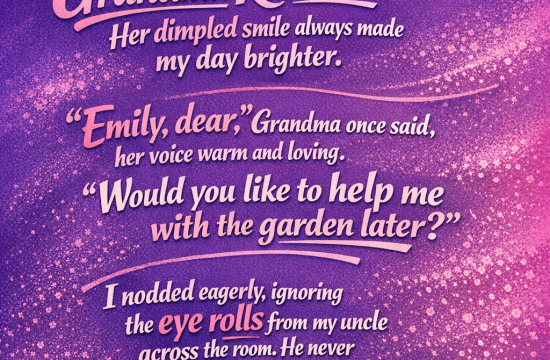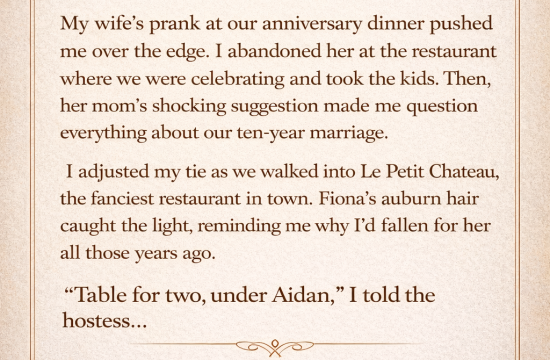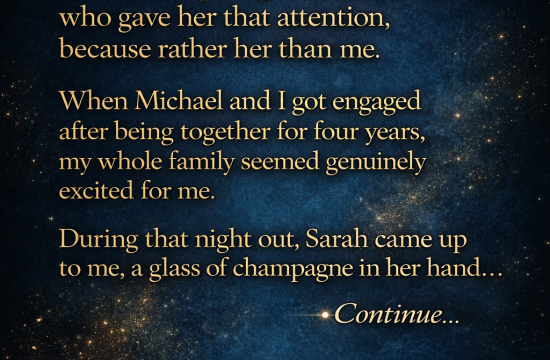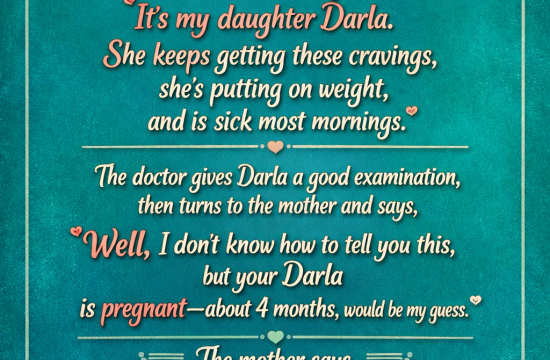At the mall, the woman in front of me at the checkout looked worn down by life. Her clothes were faded, her shoes scuffed, her tired eyes fixed on the $7 skirt she was buying. She paid, thanked the cashier, and walked toward the exit.
But the moment she stepped out, the security alarm screamed through the store.
Everyone froze.
Security moved in quickly. The woman’s face turned crimson as she clutched the plastic bag to her chest.
“I’m not a thief,” she stammered. “I bought a skirt. That’s all. Please—check if you want.”
But the alarm kept blaring, slicing through the silence like a blade.
Before security could even respond, a teenage girl rushed over. She looked about sixteen—thin, anxious, wearing a fraying school uniform and a backpack with one torn strap.
“Sir,” she said, voice shaking but steady, “the alarm went off because of me.”
The entire line stared at her.
She swallowed hard. “I left a bracelet in the pocket while trying on skirts earlier. I forgot to take it out.”
Security checked the skirt, and a cheap silver bracelet tumbled out.
The woman exhaled in a shaky burst of relief. “See?” she whispered. “I paid for it.”
The teen’s cheeks burned with embarrassment. “I’m so sorry,” she said. “I didn’t mean for this to happen.”
Instead of scolding her, the woman placed a trembling hand on her shoulder. “Thank you for telling the truth. That’s brave.”
Something softened in the crowd.
The guard nodded and waved the woman through—but the teenager wasn’t done.
She hesitated, then asked, “Ma’am… why did you buy that skirt? It’s not very… new.”
The woman hugged the bag tighter. “It’s for a job interview tomorrow. I’ve been out of work for more than a year. It’s the nicest thing I could afford.”
A hush fell over us. Her voice wasn’t self-pitying—just tired. Raw.
The teen reached into her worn backpack and pulled out a wrinkled $20 bill. “Please,” she said softly, “use this. For something better. Or for food. Or for the bus.”
“I can’t take your money,” the woman whispered.
But the girl pressed it into her hand. “You forgave my mistake. Let me help.”
I stepped forward. “You shouldn’t have to choose between clothes and eating.” I handed her a fifty.
A man behind us added twenty. A young mother added ten. Another woman dug out five. Bills kept appearing—small tokens, quiet kindnesses.
Within minutes, the woman stood there holding a fistful of hope.
“I don’t know what to say,” she managed, tears spilling. “Thank you. I’ll make this count.”
She told us her name—Marla. Her interview was at a diner across town. She didn’t even have bus fare.
The teen offered her bus pass, but I offered to drive her. Soon the four of us—strangers an hour earlier—were in my car.
First stop: a clothing shop. Marla chose a simple navy skirt and a white blouse. The shopkeeper, hearing our story, gave her a discount. We had enough left for a warm meal.
While Marla changed, the teen told me her name—Samira. Her family was struggling too. Her father had been out of work for months. Her mother cleaned offices at night. The bracelet? A birthday gift Samira had bought herself with babysitting money.
“It’s silly,” she murmured.
“It’s not,” I said. “Everyone deserves something shiny.”
She gave a shy smile.
When Marla stepped out in her new clothes, we clapped. She looked like someone who had remembered her own worth.
“Ready?” I asked.
“I am now,” she said.
The ride to the diner was quiet but warm. Marla told us about her daughter Lily, eight years old and full of dreams—always drawing their “future house” with window flowers and a porch cat.
We dropped her off ten minutes early. Before she got out, she turned to us. “Whatever happens… you gave me my faith back. I won’t forget this.”
After we returned to the mall, Samira and I exchanged numbers with Marla and promised to check in.
That night, I couldn’t sleep. I kept replaying what happened—how quickly kindness can bloom when someone is brave enough to be honest. How many times had people passed Marla, never knowing her story?
The next morning, my phone buzzed.
A text from Marla: “They hired me. I start Monday. Thank you. I’ll never forget you.”
I forwarded it to Samira.
She sent a voice note screaming, “SHE GOT IT!!”
A few days later, Samira and I visited the diner. Marla looked radiant—hair up, lipstick on, name tag gleaming. She hugged us both like family.
“If I make it through thirty days, they’ll take me on full-time,” she said. “I’m saving for Lily’s school supplies. And maybe… her birthday cake.”
We stayed for pie—“on the house,” she insisted.
Over the weeks, our bond grew. Marla and Lily came to Samira’s birthday. Their small apartment brimmed with laughter, mismatched chairs, music from a cracked speaker. The cake was slightly lopsided—but perfect.
Marla had made Samira a handmade bracelet. Simple. Beautiful.
We became something like a family—not by blood, but by choice.
Then one morning, Marla called again—crying tears of joy this time.
She’d been made permanent staff. With benefits. A regular schedule. Enough stability to be home when Lily got out of school.
Word spread in the neighborhood. Diners tipped big. Some brought toys for Lily. The owner’s wife started tutoring her on weekends.
Then a journalist visited the diner after hearing whispers of the story. Marla asked us before sharing.
“If our story makes one person kinder,” she said, “let them read it.”
The local paper titled it:
“One Honest Teen, One Struggling Mother, and the Community That Wouldn’t Let Them Fall.”
The story went viral. Messages poured in—encouragement, job leads, donations, offers to help. Samira told me she wants to study social work someday.
“I want to help people like Marla,” she said.
I told her, “You already are.”
Life wasn’t suddenly perfect for Marla. But it was hopeful. Full. Possible.
For Lily’s ninth birthday, we gifted her a watercolor set and a sketchbook. She painted smiling stick figures—her mom, Samira, me… and a cat on a porch lined with flowers.
Marla hugged us with a trembling breath. “Thank you,” she said. “For giving my daughter permission to dream again.”
As the sun dipped low, brushing the sky with pink and gold, it struck me:
It wasn’t only Marla’s life that changed.
All of ours did—because one girl told the truth, and the rest of us chose kindness instead of judgment.
Wherever you are reading this:
Be that spark. Choose compassion. You might just change someone’s life—
and your own.


